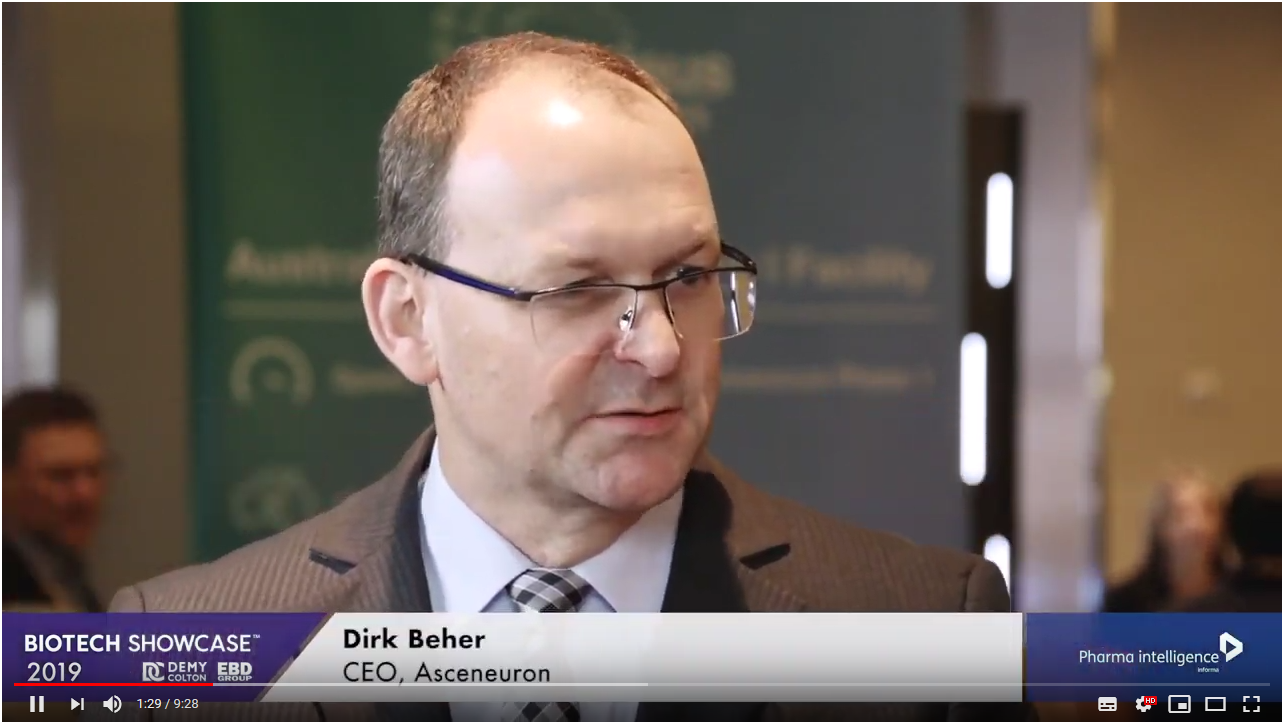Award will fund first in human clinical trials of next generation O-GlcNAcase inhibitor, ASN51, to start Q2 2021
Lausanne, SWITZERLAND and San Francisco, CA, USA, 9 March, 2021 – Asceneuron SA, an emerging leader in the development of treatments for neurodegenerative diseases, announced today the receipt of a USD 2.2 million award from the Alzheimer’s Drug Discovery Foundation (ADDF) for a first in human Phase I study of the Company’s next generation O-GlcNAcase inhibitor, ASN51. The trial is due to recruit healthy volunteers and Alzheimer’s disease patients at sites in Europe and Australia, to start in Q2 2021, with first interim data due in Q3 2021.
The award will support a Phase 1 single ascending dose arm and a positron emission tomography (PET) target engagement study in healthy volunteers. The Phase 1 clinical trials will assess safety and tolerability of ASN51, and closely examine multiple biomarkers relevant to the target mechanism and neurodegeneration in healthy subjects and Alzheimer’s patients.
O-GlcNAcase is an emerging drug target in central nervous system (CNS) drug development since deficient glycosylation patterns of intracellular proteins have been associated with diseases of aging and neuronal dysfunction. O GlcNAcase inhibitors prevent the elimination of intracellular protein glycosylation, thereby halting the decline of the steady-state levels of this posttranslational modification. O GlcNAcase inhibitors have initially been pursued exclusively for tau-related diseases. Emerging preclinical data suggest a wider application to intracellular proteinopathies such as Alzheimer’s disease and related disorders, and diseases of disturbed neuronal network function in general, with the potential to provide both disease-modifying and symptomatic benefits at the same time as multimodal drugs.
Dirk Beher, Chief Executive Officer and a Co-Founder of Asceneuron, commented:
“This Phase I clinical study targeting the root cause of neurodegeneration comes at a time when our current knowledge of the biology of O GlcNAcase has reached a critical inflection point. As a leader in this field, and with the welcome support of ADDF, we plan to translate our novel and exciting biology into significant health benefits for patients with neurodegenerative diseases.”
Howard Fillit, M.D., Founding Executive Director and Chief Science Officer of the ADDF, commented:
“Alzheimer’s disease is a complex neurodegenerative disease, and many studies highlight the role of reducing neurodegeneration as a promising path to effective treatment. The ADDF is pleased to help advance Asceneuron’s research program to test this drug candidate in Alzheimer’s patients in a Phase 1 clinical trial.”
Peter Van Vlasselaer, Chairman of Asceneuron added:
“We’re delighted to have received this substantial recognition from the ADDF for our work in neurodegeneration, and the potential of our pipeline. Together with support of the ADDF, we look to treatments for not just AD, but all and related dementias, providing new hope for the medical community, the patients, and their families / one of the greatest healthcare challenges of our time.”


